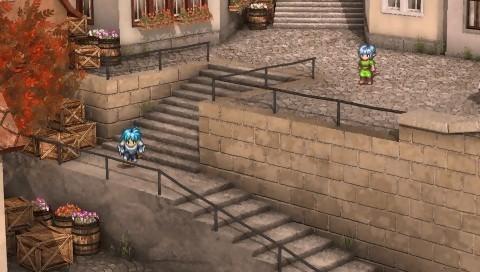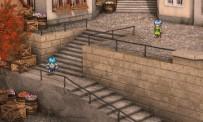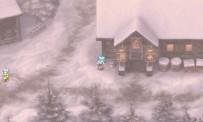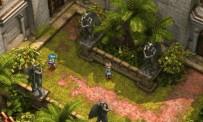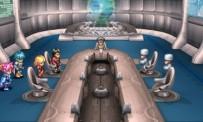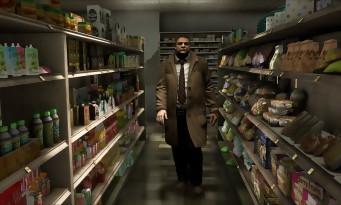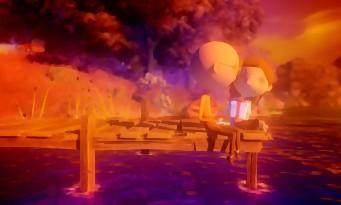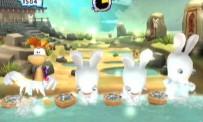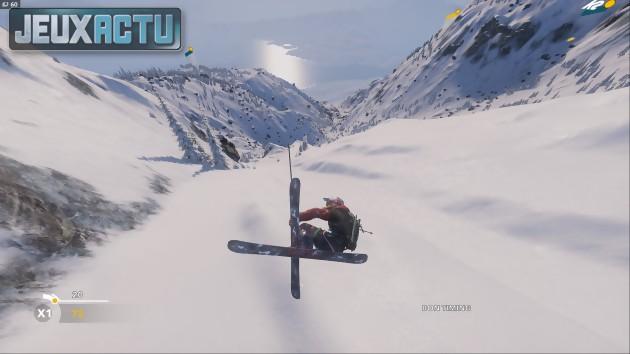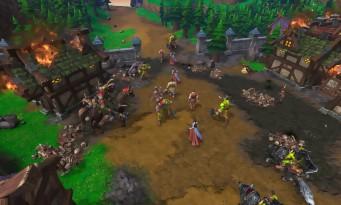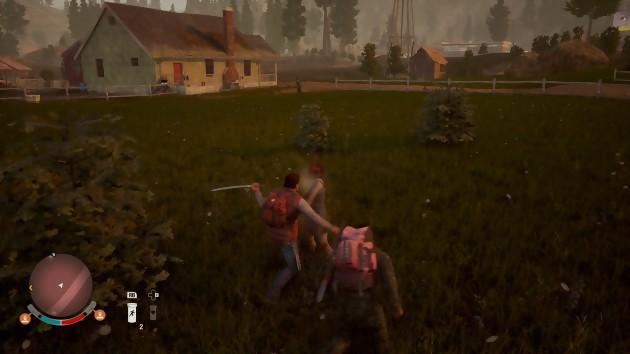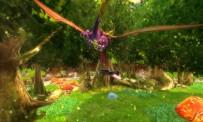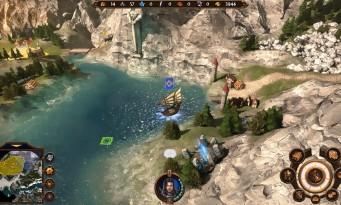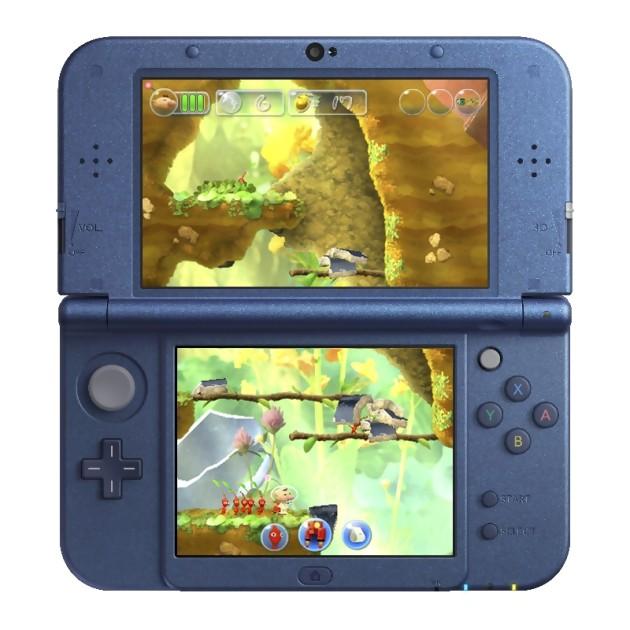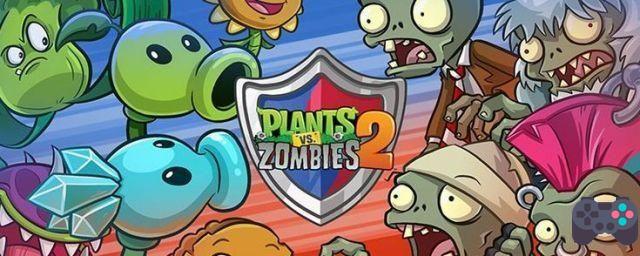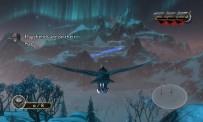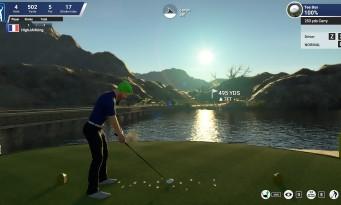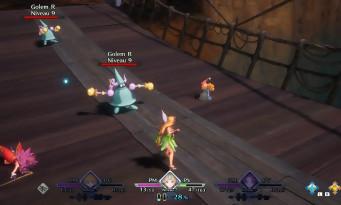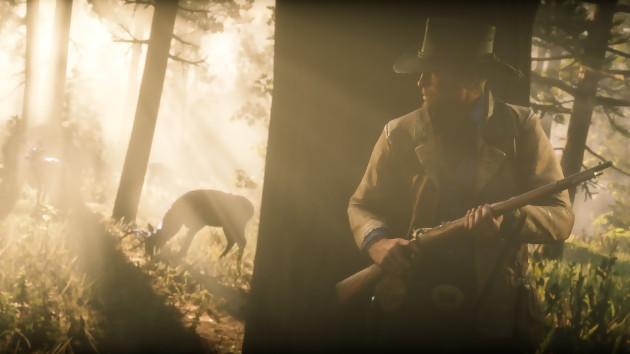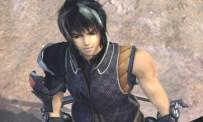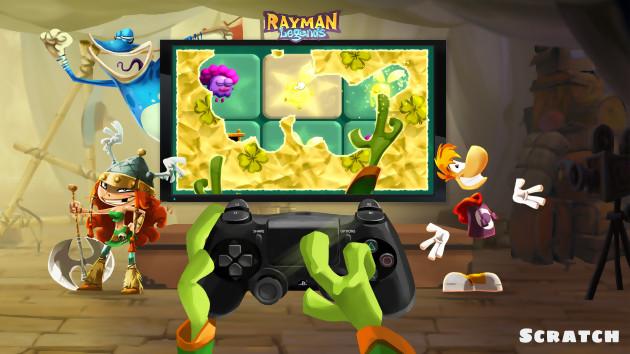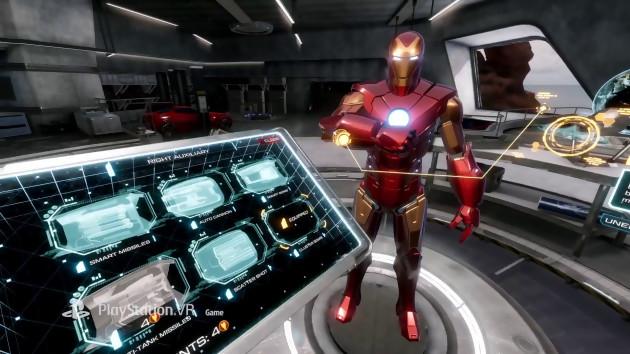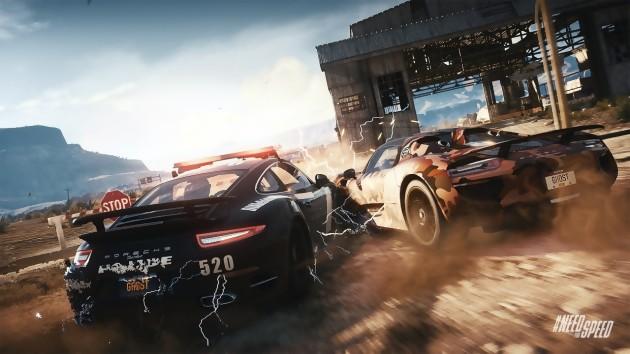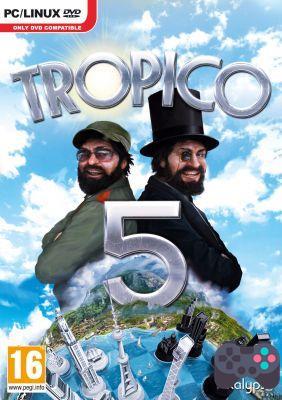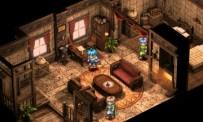 It is obviously not this title in question today, but rather its remake, recently landed on PSP in a much reduced anonymity since the shock Star Ocean: Till the End of Time on PS2, third flamboyant episode of a series which only had its heyday in Europe with the help of this opus. Indeed few players remember the publication of the second chapter, the aptly named Star Ocean: The Second Story during the year 2000. The genesis was therefore missing from this space saga, an inconsistency that Square-Enix of course corrected after having subtly adapted its marketing plan. But the main thing is to benefit from the interesting playful spin-offs, which is the case with this Star Ocean: First Departure, much more modern than its 2D characters suggest. To believe that the remakes become more innovative than the novelties. Like the heroes of this Star Ocean, perhaps the designers of tri-Ace travel between dimensions in their spare time.
It is obviously not this title in question today, but rather its remake, recently landed on PSP in a much reduced anonymity since the shock Star Ocean: Till the End of Time on PS2, third flamboyant episode of a series which only had its heyday in Europe with the help of this opus. Indeed few players remember the publication of the second chapter, the aptly named Star Ocean: The Second Story during the year 2000. The genesis was therefore missing from this space saga, an inconsistency that Square-Enix of course corrected after having subtly adapted its marketing plan. But the main thing is to benefit from the interesting playful spin-offs, which is the case with this Star Ocean: First Departure, much more modern than its 2D characters suggest. To believe that the remakes become more innovative than the novelties. Like the heroes of this Star Ocean, perhaps the designers of tri-Ace travel between dimensions in their spare time.
Rhinoceros Ocean
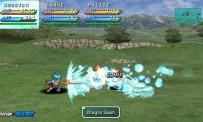 Not content to improve the overall graphic quality by rounding the pixels and increasing the color contrasts, Star Ocean: First Departure operates a total overhaul of its 16-bit model by sublimating the engine of the second component. The transition is impressive in most cases within the many cities that comprise the title, notably Eckdart which displays extremely detailed dwellings as well as a beautifully rendered autumnal atmosphere, in places of the lackluster aspect of its ancestor. Filled with textures with truly striking realism, reminiscent of the meticulousness of a Valkyrie Profile here in isometric 3D, Square-Enix's software attracts the eye before the mind. The latter is busy letting himself be carried away by the melodious soundtrack of Sakuraba, which gives here to hear surprisingly subtle nuances for old compositions and above all offers a rather exceptional variety of atmospheres and themes. In terms of the graphic surgery operated on this Star Ocean, it is important to note a completely redesigned character, offering eminently more endearing characters, Roddick and Ronyx gaining a significant charisma, which reinforces their status as " leaders”. In a similar concern to offer the player an easier identification, cinematic scenes produced by the Japanese studio Production IG (Ghost in the Shell: Stand Alone Complex, Jin-Roh: the Wolf Brigade, etc.) come, unfortunately very rarely, illustrate the key moments of the scenario. Finally, a complete and high quality dubbing calls on stars of the profession like Julie Maddalena or Yuri Lowenthal. The whole gives a current structure to an RPG turned to the past sometimes resembling an old picture book that is both captivating and archaic.
Not content to improve the overall graphic quality by rounding the pixels and increasing the color contrasts, Star Ocean: First Departure operates a total overhaul of its 16-bit model by sublimating the engine of the second component. The transition is impressive in most cases within the many cities that comprise the title, notably Eckdart which displays extremely detailed dwellings as well as a beautifully rendered autumnal atmosphere, in places of the lackluster aspect of its ancestor. Filled with textures with truly striking realism, reminiscent of the meticulousness of a Valkyrie Profile here in isometric 3D, Square-Enix's software attracts the eye before the mind. The latter is busy letting himself be carried away by the melodious soundtrack of Sakuraba, which gives here to hear surprisingly subtle nuances for old compositions and above all offers a rather exceptional variety of atmospheres and themes. In terms of the graphic surgery operated on this Star Ocean, it is important to note a completely redesigned character, offering eminently more endearing characters, Roddick and Ronyx gaining a significant charisma, which reinforces their status as " leaders”. In a similar concern to offer the player an easier identification, cinematic scenes produced by the Japanese studio Production IG (Ghost in the Shell: Stand Alone Complex, Jin-Roh: the Wolf Brigade, etc.) come, unfortunately very rarely, illustrate the key moments of the scenario. Finally, a complete and high quality dubbing calls on stars of the profession like Julie Maddalena or Yuri Lowenthal. The whole gives a current structure to an RPG turned to the past sometimes resembling an old picture book that is both captivating and archaic.
Through the skies, space and time
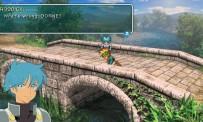 Like its basic framework, Star Ocean: First Departure seems to go back and forth between two eras, interfering in the present with timeless game mechanics, but also drawing from its past gaps that are poorly accepted today. Nevertheless, the adjective best suited to this RPG is definitely: "surprising". Despite its inherent flaws in its old-school, jagged progression, its sluggish movements on the world map and the totally disproportionate importance of equipment on the course of the game, Star Ocean reveals treasures of inventiveness, certainly taken up in the following opuses, but always fascinating in depth. In fact, each of the speakers has a specific sensitivity in particular areas, often relating to facets of his personality. For example, Roddick has at the beginning of the adventure a spirit turned towards originality and an innate sense of taste. Two characteristics that push him towards creation and cooking. From this simple observation is born a system of generation of abyssal objects which will later become one of the trademarks of the saga. Everything is done through reading manuals of four different categories: Knowledge (knowledge), Sense (perception), Technical (techniques) and finally Combat (combat abilities), each teaching you certain skills, such as drawing, firmness, courage, speed, sense of design, etc... Each book is broken down into several levels (from 1 to 4) in order to give access to other more specific possibilities. At each level acquired or during specific events, you earn a defined number of SP which will be added, their total not being able to exceed 999. These points will in fact serve you to learn the skills integrated into the consultation of the works, including some affect your status. These contain ten levels and obviously require more and more SP as they evolve. But this is only the beginning. Indeed, the real interest of this mass learning remains the development of specialties.
Like its basic framework, Star Ocean: First Departure seems to go back and forth between two eras, interfering in the present with timeless game mechanics, but also drawing from its past gaps that are poorly accepted today. Nevertheless, the adjective best suited to this RPG is definitely: "surprising". Despite its inherent flaws in its old-school, jagged progression, its sluggish movements on the world map and the totally disproportionate importance of equipment on the course of the game, Star Ocean reveals treasures of inventiveness, certainly taken up in the following opuses, but always fascinating in depth. In fact, each of the speakers has a specific sensitivity in particular areas, often relating to facets of his personality. For example, Roddick has at the beginning of the adventure a spirit turned towards originality and an innate sense of taste. Two characteristics that push him towards creation and cooking. From this simple observation is born a system of generation of abyssal objects which will later become one of the trademarks of the saga. Everything is done through reading manuals of four different categories: Knowledge (knowledge), Sense (perception), Technical (techniques) and finally Combat (combat abilities), each teaching you certain skills, such as drawing, firmness, courage, speed, sense of design, etc... Each book is broken down into several levels (from 1 to 4) in order to give access to other more specific possibilities. At each level acquired or during specific events, you earn a defined number of SP which will be added, their total not being able to exceed 999. These points will in fact serve you to learn the skills integrated into the consultation of the works, including some affect your status. These contain ten levels and obviously require more and more SP as they evolve. But this is only the beginning. Indeed, the real interest of this mass learning remains the development of specialties.
Like its basic framework, Star Ocean: First Departure seems to go back and forth between two eras, interfering in the present with timeless game mechanics, but also drawing from its past gaps that are poorly accepted today.
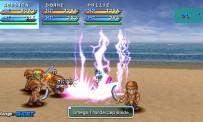 They are the ones who will give you access to the techniques that you can use on, or outside, the battlefield. Especially since it is possible to generate new ones by learning several skills, such as cooking, which will require you to at least know the basics of handling a knife (knife skill), to have in mind recipes (recipe skill) and finally to have a wise eye (keen eye). You will therefore have to spend many hours in this section in order to test combinations, to try tangles and above all to test all your acquired skills. Rare are the RPGs betting so much on an empirical side, giving the title an aura of a video game sandbox that is as addictive as it is enjoyable. Starting point for an explosion of possibilities, ranging from making your own armor, to writing musical pieces giving you bonuses/maluses, this specialization system is still fantastically deep today. It authorizes in particular, and there is in a sense its fault, the creation of objects and weapons with statistics sometimes much higher than what they should be at the time of their realization. However, this inventory is somewhat offset by the relatively non-linear side of the software, which pushes you to explore the map and face tough opponents, impossible to defeat without any material help. A desire for playful branches which has a direct impact on the narrative aspect of the title, also varying according to the choices you make in your discussions but also during the Private Action, phases that you choose to experience at the entrance to a town, while your companions are scattered around the city. It is then up to you to talk to them personally in order to sometimes trigger new scripted scenes that swing the destiny of one of the characters in a particular direction, visible once the adventure is over. Star Ocean: First Departure therefore offers an exhaustiveness rarely achieved in the field of RPG, which does not prevent it from leaving its combat system a little behind.
They are the ones who will give you access to the techniques that you can use on, or outside, the battlefield. Especially since it is possible to generate new ones by learning several skills, such as cooking, which will require you to at least know the basics of handling a knife (knife skill), to have in mind recipes (recipe skill) and finally to have a wise eye (keen eye). You will therefore have to spend many hours in this section in order to test combinations, to try tangles and above all to test all your acquired skills. Rare are the RPGs betting so much on an empirical side, giving the title an aura of a video game sandbox that is as addictive as it is enjoyable. Starting point for an explosion of possibilities, ranging from making your own armor, to writing musical pieces giving you bonuses/maluses, this specialization system is still fantastically deep today. It authorizes in particular, and there is in a sense its fault, the creation of objects and weapons with statistics sometimes much higher than what they should be at the time of their realization. However, this inventory is somewhat offset by the relatively non-linear side of the software, which pushes you to explore the map and face tough opponents, impossible to defeat without any material help. A desire for playful branches which has a direct impact on the narrative aspect of the title, also varying according to the choices you make in your discussions but also during the Private Action, phases that you choose to experience at the entrance to a town, while your companions are scattered around the city. It is then up to you to talk to them personally in order to sometimes trigger new scripted scenes that swing the destiny of one of the characters in a particular direction, visible once the adventure is over. Star Ocean: First Departure therefore offers an exhaustiveness rarely achieved in the field of RPG, which does not prevent it from leaving its combat system a little behind.
Explosive Kick !
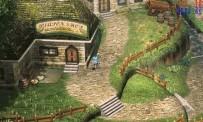 Particularly dynamic because taking place in real time, the confrontations of Star Ocean look like A-RPG fights. It is necessary to press the action button to strike a blow, the protection key to parry and to use the L and R slices on which you will have previously assigned the special assaults won as you progress. If the whole thing turns out to be full of adrenaline and clearly enjoyable to take in hand, it is a shame to have more the impression of witnessing a melee without contours than a fight worthy of the name. Once the right equipment has been acquired, it will often suffice to press the attack button in a sort of trance that only Star Ocean and the series of Tales of provoke, without worrying about his placement or the nature of his blows. Raw, intense pleasure that will suit more or less depending on how you approach it. The fact remains that the altercations are expeditious, practically devoid of loadings and therefore do not break the rhythm of the software. To believe that the old-school is perhaps not so rusty as its squeaks let think. Only the scenario remains a clear sign of old age, at least in the first half of the game, confining itself to making you visit cities and chain dungeons with a single goal, to bring down Asmodeus. If the first hours turn out to be rich in questions and drama, the famous soft underbelly of the adventure world is indeed present, still gaining density in the home straight. Nevertheless, alongside the basic plot, many intelligent questions are asked, in particular on the relationship between science and religion, and the relationships between the characters are sometimes surprisingly emotional and humorous. A story where you feel good is sometimes more worthy of interest than a script with improbable and incessant twists. At least that is what is said beyond the stars.
Particularly dynamic because taking place in real time, the confrontations of Star Ocean look like A-RPG fights. It is necessary to press the action button to strike a blow, the protection key to parry and to use the L and R slices on which you will have previously assigned the special assaults won as you progress. If the whole thing turns out to be full of adrenaline and clearly enjoyable to take in hand, it is a shame to have more the impression of witnessing a melee without contours than a fight worthy of the name. Once the right equipment has been acquired, it will often suffice to press the attack button in a sort of trance that only Star Ocean and the series of Tales of provoke, without worrying about his placement or the nature of his blows. Raw, intense pleasure that will suit more or less depending on how you approach it. The fact remains that the altercations are expeditious, practically devoid of loadings and therefore do not break the rhythm of the software. To believe that the old-school is perhaps not so rusty as its squeaks let think. Only the scenario remains a clear sign of old age, at least in the first half of the game, confining itself to making you visit cities and chain dungeons with a single goal, to bring down Asmodeus. If the first hours turn out to be rich in questions and drama, the famous soft underbelly of the adventure world is indeed present, still gaining density in the home straight. Nevertheless, alongside the basic plot, many intelligent questions are asked, in particular on the relationship between science and religion, and the relationships between the characters are sometimes surprisingly emotional and humorous. A story where you feel good is sometimes more worthy of interest than a script with improbable and incessant twists. At least that is what is said beyond the stars.
